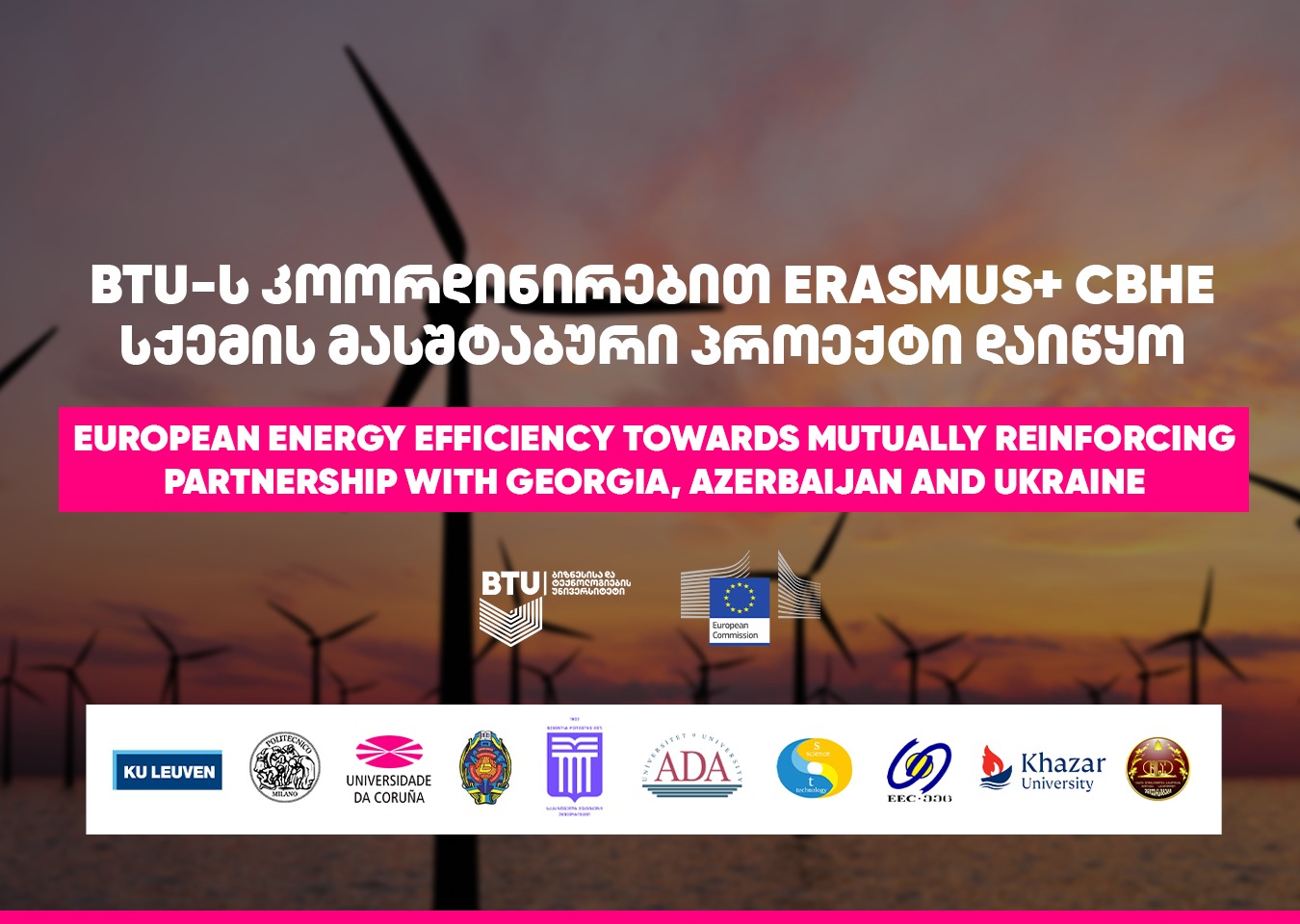Business and Technology University will coordinate a large scale project funded by the European Union under the ERASMUS + program -EU programme for education, training, youth and sport. The project ‘European Energy Efficiency towards Mutually Reinforcing Partnership with Georgia, Azerbaijan and Ukraine’ aims at modernizing and empowering higher education institutions in Azerbaijan, Georgia and Ukraine and strengthening their capacities towards energy resilience and cross-regional cooperation. To achieve set ambitious goal, the 3E-Partnership project will base its scope on two pillars:
– Knowledge Generation – Co-designing and piloting Curriculum in energy efficiency, developing modern competences and building necessary skills for participants.
– Building mutually reinforcing partnerships – Co-Creating Collaboration and Networking structure of Energy Labs and Green Network among participating HEIs.
The project will gather and produce context-specific knowledge (considering EU’s new energy plan, EaP’s potential for new role and urgent need for renewables). It will interrelate the activities of engaged energy labs and disseminate project outcomes to society at large. The proposed initiative will increase academic capacity for efficient implementation of the REPowerEU Plan and the Black Sea Submarine Electricity Cable project. Promoted energy efficiency and sustainable solutions for Azerbaijan, Georgia and Ukraine are primarily linked to improved energy access and timely transition to clean, low-carbon and secure systems. In addition, and maybe more importantly, it is linked to energy security, especially given the current energy hardships, supply chain disruptions and unprecedented challenges on the global energy market. The project will address mid-term pressures and keep focused on its long-term aspirations of building mutual resilience. In the short and mid-term perspectives the project will impact engaged institutions, individuals, students and academic personnel by enhancing their capacities, access to infrastructure, access to the most current knowledge and resources in energy efficiency. The project will put efforts to create new partnerships and stimulate linkages between academic and non-academic sector representatives towards joint sustainable solutions.
The 3-E project (duration of 36 months) gathers the following universities under the consortium:
- Catholic University of Leuven, Belgium
- Polytechnic University of Milan, Italy
- University of La Coruña, Spain
- ADA University, Azerbaijan
- Khazarian University, Azerbaijan
- Technical University of Georgia, Georgia
- Iakob Gogebashvili Telavi State University, Georgia
- Energy Efficiency Center, Georgia
- Ukrainian State University of Science and Technology, Ukraine
- Donetsk National Technical University, Ukraine
This initiative will turn into an opportunity to mobilize cross regional and cross sector experience, facilitate knowledge exchange, ensure stakeholder engagement (including students, professors, staff) and
create high quality knowledge products necessary for successful implementation of the above-mentioned state-level obligations. The project contributes to the exchange of international best practices, enables an
efficient government-university-industry dialogue and through transferring knowledge creates economic and social value (it’s noteworthy that engaged institutions are not only from the capital or the central area, but also from the regions of Georgia and Ukraine).

